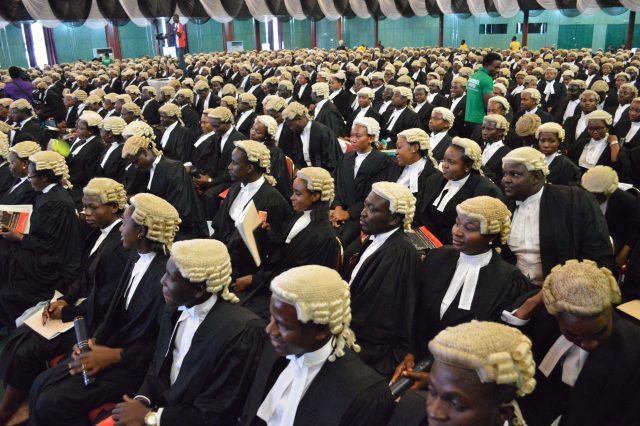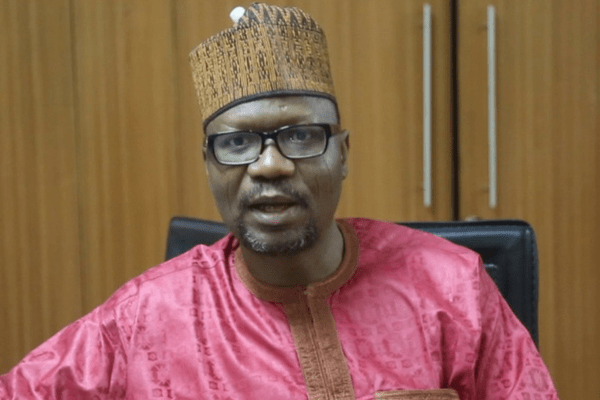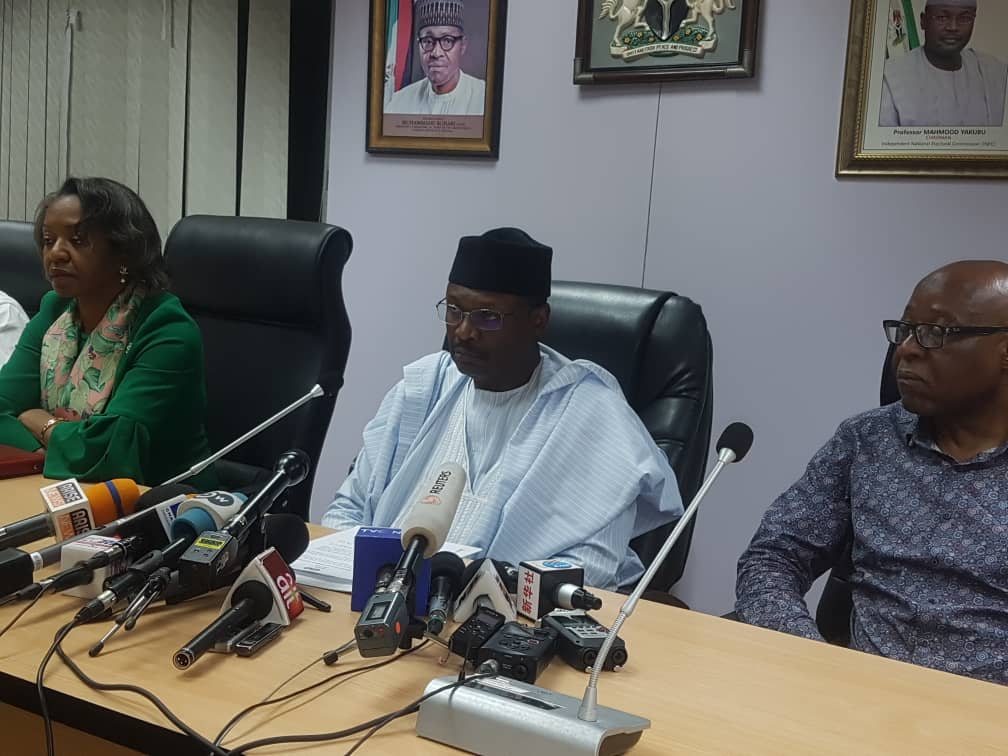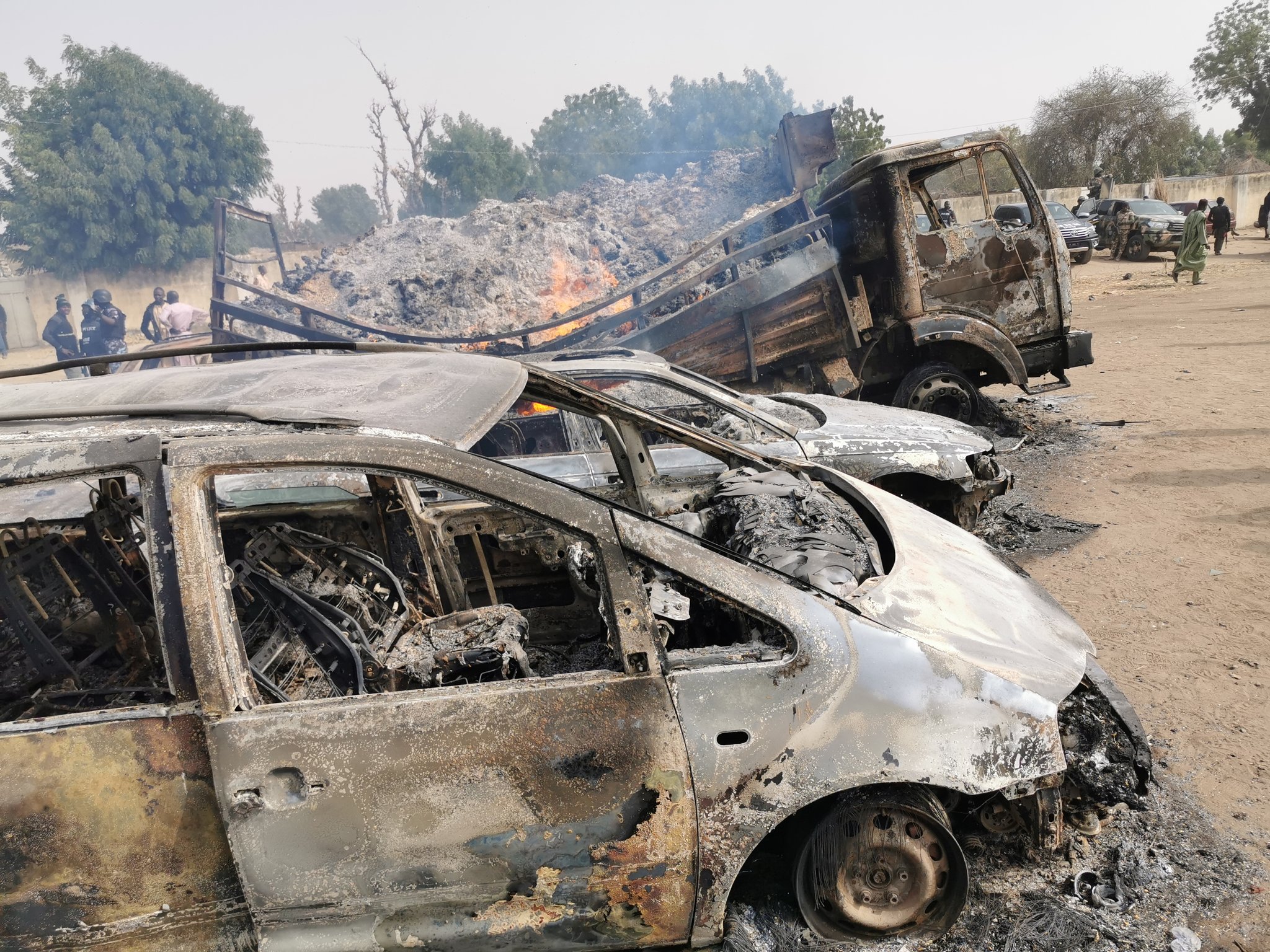BY OLAOLUWA ONI
For young members of the Nigerian Bar Association (NBA), it is that time again! After over a year of silence, you are now receiving NBA-related text messages and emails. As the elections draw near, the candidates need to impress on you just how important you are to them. A message for when you wake at 4:30am so you can be out of the house by 5:30am so you can be at work by 8:00am. Another message for when you are stuck in a too small, too hot courtroom, waiting for a judge who may or may not show up. Another one for when you settle at your desk, never mind that your salary at the end of the month, if it gets paid, barely meets your monthly needs. And a final text message as you make your way home at 10:00pm, back bent, eyes tired, shirt browned with sweat. The candidates want you to know that you are loved, you are valued, and you are important. Or your votes are anyway.
OUT WITH OLIGARCHY, IN WITH DEMOCRACY
The 2015 amended NBA constitution introduced Universal Suffrage. This amendment unseated the indirect voting system of Delegate Voting previously in play. In 2016, the Augustine Alegeh, SAN-led administration conducted the first ever NBA election by Universal Suffrage and electronic voting. The 2016 election saw A.B Mahmoud SAN emerge as the winner and President of the NBA. Chief J-K Gadzama SAN, who had also contested for the seat president disputed the election results and filed a civil suit that was eventually dismissed several months after Mahmoud completed his tenure as president.
However, this dispute, and the attendant accusations, side-picking, and finger-pointing, marked an important moment for the young Nigerian lawyer. The old guard had turned on itself and a crack was spreading through the united front of older lawyers keeping the young ones “in their place.”
Advertisement
So, although Mahmoud was declared winner of the 2016 election, the true winners of that process were the young lawyers who were previously disenfranchised by the Delegate Voting system. The 2016 election gave young lawyers an insight into the weight of power we carried, the power of the popular vote.
With this system of one vote per person, the NBA had become, in true democratic spirit, a popularity contest. Out with oligarchy, in with democracy.
THE ELEPHANTS FIGHT AND THE GRASS THRIVES
Advertisement
The candidates for the 2018 elections had clearly learned lessons from their 2016 predecessors. The 2018 candidates sought the popularity currency with tunnel focus. Camps and teams were formed and again, the old guard turned on itself. Secrets were revealed, truths were told, and accusations were levied.
Paul Usoro, SAN was declared winner but just as important, Prof. Ernest Ojukwu, SAN (and his supporters) morphed into a viable opposition, a check to the once omnipotent power of the seat of the President. When Usoro, months into his tenure as president, was levied with a 10-count charge of alleged fraud, Ojukwu’s team started a campaign asking that Usoro step down from office and fight his legal battles without the faux absolution the seat of NBA President gives. It was a rare thing to see: senior lawyers holding each other to account for their alleged misdeeds and demanding consequences. The 2018 election portended how 2020 will play out.
The 2020 NBA elections are now a few months away, and the presidential candidates have heightened the drive to be seen as the most in touch with the needs and idiosyncrasies of young lawyers. Where one lawyer sponsors a giveaway for Afro-pop music concert tickets, the other grants a rare personal interview to an online magazine targeted at young lawyers. Where one gives us a hashtag, the other gives us a campaign slogan. Where one posts a photo of himself at an NBA meeting, the other posts a video. It has now become an all-out social media war, a question of who will stay in the face and memory of young lawyers the longest.
The elephants are fighting and their weapon of choice is the support and validation of young lawyers.
Advertisement
THE POLITICS OF DIVISIVENESS
The 2015 NBA constitution prescribes the application of a zoning formula to determine qualification for elective office, and so lends itself to the politics of divisiveness.
The effect of this is that candidates for electoral offices are chosen primarily based on their belonging to any one of three geographical zones which are identified in the second schedule of the NBA constitution as North, West, and East.
As such, in the quest to lead the NBA, the candidate’s first task is not to demonstrate knowledge of the law, or experience in legal practice, or even administrative experience. No, the candidate must first draw out a family tree and sufficiently prove that they can trace their ancestral roots to the geographical zone whose turn to lead has come.
Advertisement
Quota systems such as a zoning formula are inherently problematic as they tend to emphasize the random occurrence of belonging to a specific class over more objective criteria to determine suitability for a role. However, a quota system could be useful if it helps foster inclusivity or diversity in a multi-cultural system like Nigeria. Unfortunately, the NBA’s application of the zoning formula does nothing to foster true and useful diversity or inclusivity.
Per Article 2.2 of the 2015 NBA constitution, “In determining the eligibility of a candidate to contest for any of the rotated offices, regard shall be had to a candidate’s Geographical Zone of origin and not the geographical Zone where he/she carries on legal practice.”
Advertisement
What this means is that the NBA’s application of the zoning formula is not designed to take cognizance (and advantage) of the nuances of law practice in the different geographic units around the country. Rather, the formula is singularly concerned with a candidate’s state of origin, which in Nigeria refers to the state where a candidate is ancestrally rooted, never mind if the candidate’s experiences in legal practice are far removed from his ancestral origins. The NBA’s zoning formula is primarily designed to categorize legal practitioners on the basis of tribe and ethnic group.
To paint a clear picture: a legal practitioner who has lived and worked all their life in Lagos state and who runs their practice in Lagos state will be considered a suitable candidate from the East if they can trace their ancestry to Enugu state. Even more bizarre is that such a candidate will be deemed an “Eastern” candidate above a candidate who was born and has lived in Enugu state and who runs their practice in Enugu state but whose ancestry is traced back to Kano state.
Advertisement
In the 2018 NBA elections, Usoro and Ojukwu ran for the office of President as “Eastern” Candidates. By the application of the zoning formula à la the NBA constitution, both Usoro and Ojukwu were equally qualified to speak to the experience of being a legal practitioner from the East of the country. Usoro, a graduate of University of Ife, runs a primarily Lagos-based practice and has some early-career experience practicing law in the North. Ojukwu, a former Director General of the Enugu Campus of the Nigerian Law school, runs a law practice in the East and teaches as a Professor of Law in the East. Usoro won the election.
The problem of entrenching divisiveness in the constitution becomes evident when we consider how much bigotry has featured in the campaign leading up to the 2020 elections. It is reported that a faction of legal practitioners of Yoruba origin who tag themselves under the umbrella of “Egbe Amofin” have distinguished themselves from other legal practitioners from the West. The Egbe Amofin has collectively endorsed a Yoruba candidate with the aim of ensuring that a Yoruba person (as opposed to non-Yoruba Western candidate) wins the seat of president.
Advertisement
Muyiwa Akinboro, SAN who was a contender for the 2020 presidency, withdrew his candidacy in favor of Dele Adesina, SAN after the Egbe Amofin decision. He is reported to have said, “What is paramount to me is that a Yoruba man must emerge as the next president of the NBA.”
This statement is an important indication of the primary concern of some senior members of the bar. It is not the welfare of young lawyers, or even in the overall development of legal practice in Nigeria. It is tribal and ethnic politics.
THE IDEAL CANDIDATE FOR YOU
The run-up to the 2020 elections has seen senior lawyers seek out active engagement with younger lawyers as well as take interest in development and welfare of young lawyers; this is a great development. However, young lawyers must investigate if this is true epiphany that will be sustained or if it is simply manipulation and narcissism masquerading as benevolence.
A question: in the event that the candidate loses this election, will the candidate continue to ensure the progress and development of the young lawyers?
Another question: does the candidate’s interest extend to young members of the legal system who aren’t yet qualified to vote i.e. the law student in universities and law schools, or is interest limited to only those individuals from whom votes can be purchased?
And among the voting class, does the candidate’s benevolence extend to those to whom he (yes, these are all male candidates) owes an obligation, such as employees who derive their livelihood from the candidate and whose physical and mental health are subject to policies the candidate institutes and/or permits. What do these employees say of your candidate? Do they agree that their boss should be given the top spot?
It is relatively easy to indulge in casual and discretionary acts of benevolence. The harder thing is to allow oneself be held accountable by those to whom one owes an obligation. How has the candidate performed on his obligation towards his employees? The measure of regard a candidate shows employees is an accurate gauge of how much regard he will show to young members of the NBA if he wins the elections.
The candidate who will best serve your interest as a young Nigerian lawyer is one doing the work to install a system that protects the interest of young lawyers and curbs the oppressive omnipotence of senior lawyers. This system must function outside the control and whims of any person or group of persons for any true change to be wrought.
A final question: is your candidate the ideal candidate?
Olaoluwa is a lawyer and writer. Her first book, the NBA, spotlights the experiences of young lawyers in Lagos and is available for purchase online and in major bookstores across the country.
Views expressed by contributors are strictly personal and not of TheCable.
Add a comment






